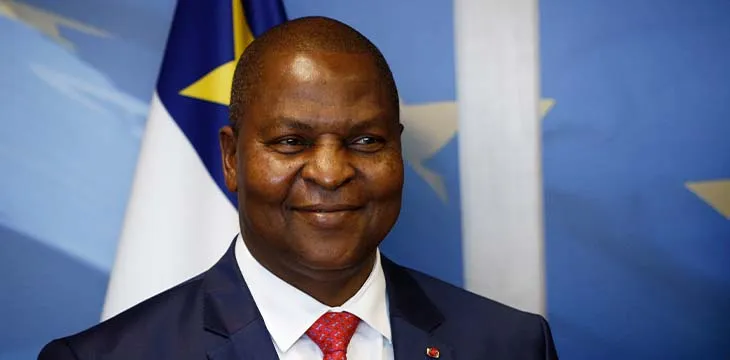|
Getting your Trinity Audio player ready...
|
The Central African Republic (CAR) grabbed headlines after it announced that it had become the second nation globally to adopt BTC as legal tender. And as the country’s president recently revealed, his government is backing a BTC hub that he believes will give the nation a brighter future.
President Faustin-Archange Touadéra took to Twitter to reveal that his government was fully behind Sango, a digital asset initiative that was proposed to expand on the BTC legal tender move. The president revealed that the initiative would launch in a week’s time.
With #Bitcoin as #legaltender & inspiration, our country opens a new chapter in its inspiring journey towards a brighter future via #blockchain #tech.
Everyone is welcome to witness the Sango Genesis Event that will be broadcast on the 3rd of July, on https://t.co/LIQiKGhcBS. pic.twitter.com/7u6knv5f6w— Faustin-Archange Touadéra (@FA_Touadera) June 27, 2022
On its website, Sango touts itself as “the first legal crypto hub recognized by a country’s parliament that welcomes businesses and attracts global crypto-enthusiasts.”
With the goal of “taking the Bitcoin legacy to the next level,” Sango includes an e-residency program, citizenship by investment, online business registration, 0% income, and corporate tax. It also intends to have a crowd-funding and tokenization framework, accept digital identities and eventually lead to the formation of the Digital National Bank.
Sango will also come with a virtual island that will link “the real world (real estate, fractional ownership) to the metaverse representation, while adding extra layers for future expansion.”
“The ambitious strategy to quickly build a successful economy can only rely on new technologies that have taken the world by storm and taken money to another level, with Bitcoin as a watchword,” President Touadéra says.
Bukele’s disciple pushes BTC at all costs
The CAR leader is quickly taking after Nayib Bukele, the “world’s coolest dictator” and president of El Salvador, the first country to make BTC legal tender. For one, they both push their people to keep purchasing BTC, not because it delivers them from their many challenges, but because its price will supposedly continue to rise in the future.
Yet another trait they share is their disconnection from reality. BTC can’t be used as a currency due to high fees and very slow transactions. But to these two leaders, BTC is the money of the future, and for Touadéra, it represents “a rethink of our economic philosophy.”
Like in El Salvador, the average Joe in CAR either knows little about BTC or wants nothing to do with it. For many others, access to BTC is nearly impossible due to a lack of smartphones, the internet, or both.
“I have a smartphone, but I do not have good enough internet to be able to use cryptocurrency. Also, I do not trust cryptocurrency because there are people who do scams on the internet,” Edith Yambogaze, who sells cassava in the capital Bangui, told the BBC recently.
President Touadéra and his cronies, however, have a response to any detractors. MP Jean Galvanis Ngassiyombo, who is on the National Assembly’s economic, planning and finance commission, is one of those in full support of the Bitcoin Law. However, even he admits that the internet in CAR isn’t up to par with a BTC-based monetary system. But he says that it’s BTC first and then internet later.
“What the [Bitcoin] law did is anticipate that technology so, in fact, we can be ready when that technology is available to us,” claimed the MP, who admits to being a speculative trader himself, saying that CAR will be getting a high-speed fibre optic network in a year or two.
Among the biggest skeptics of the BTC move is the Bank of Central African States (BEAC), a central bank based in Cameroon which oversees the national currencies of several Central African states. Governor Abbas Mahamat Tolli wrote a damning letter to the CAR Finance Minister Hervé Ndoba urging him to reconsider the law as it could have far-reaching economic implications.
And according to Africa Intelligence, even those serving in the Touadéra government are skeptical. The outlet reports that the local director of the Bank of Central African States, Ali Chaibou, is one of the doubters and has secretly sought the advice of the IMF on how best to navigate moving forward.
Follow CoinGeek’s Crypto Crime Cartel series, which delves into the stream of groups from BitMEX to Binance, Bitcoin.com, Blockstream, ShapeShift, Coinbase, Ripple,
Ethereum, FTX and Tether—who have co-opted the digital asset revolution and turned the industry into a minefield for naïve (and even experienced) players in the market.

 07-02-2025
07-02-2025 





